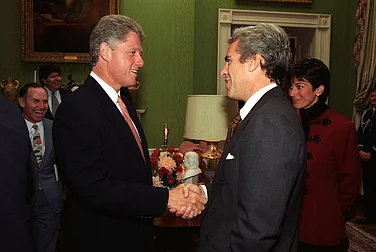The bail application of Pakistan's jailed former prime minister Imran Khan in the cypher case related to the alleged disclosure of state secrets was rejected by a special court in Pakistan on Thursday. Khan and former foreign minister Shah Mahmood Qureshi were arrested under the Official Secrets Act for allegedly misplacing and misusing a classified document for vested political interests.
The reserved verdict was announced by the special court Judge Abual Hasnat Zulqarnain, who heard the bail applications of Khan and former foreign minister Shah Mahmood Qureshi following completion of arguements by the Pakistan Tehreek-e-Insaf (PTI) party counsels.
Before the Cypher case, 70-year-old Khan was lodged at the District Jail, Attock, in Punjab province on August 5 after conviction in the Toshakhana case.
About today's arguements
Citing that there have been 180 cases lodged against the former Pakistan prime minister, Khan's counsel maintained that no other leader has been subjected to political victimisation to the extent the PTI chairperson is facing.
The judge rejected the post-arrest bail pleas of the two leaders.
Later in the afternoon, PTI's legal affairs spokesperson lawyer, Naeem Haider Panjhutha, posted on X that the post-arrest bail pleas were dismissed.
"Unfortunate justice system," he said.
On Wednesday, the special court extended the judicial remand of both leaders till September 26.
Though his sentence in the case was suspended by the Islamabad High Court (IHC) on August 29, Khan remains in Attock prison in the cypher case. Last month, the special court extended his remand for 14 days till September 13.
About the Cypher case
The cypher case is based on the alleged leaking of a cable sent by the Pakistan embassy in Washington in March last year.
In March last year, ahead of the vote of no-confidence that resulted in his ouster, Khan pulled out a piece of paper - allegedly the cypher - from his pocket and waved it at a public rally in Islamabad, claiming it was the evidence of an "international conspiracy" being hatched to topple his government.
However, during the interrogation with the joint investigation team (JIT) in the jail on August 26, Khan denied that the paper he waved at a public gathering last year was the cypher. He also admitted to losing the cypher, saying he couldn't recall where he kept it.
His principal secretary, Azam Khan, stated before a magistrate and the FIA that the Khan used it for his 'political gains' and to avert a no-confidence vote against him.
The purported cypher (secret diplomatic cable) contained an account of a meeting between US State Department officials, including Assistant Secretary of State for the Bureau of South and Central Asian Affairs Donald Lu, and Pakistani envoy Asad Majeed Khan last year.
Last month, authorities launched a case against Khan, Qureshi and former PTI Secretary General and Finance Minister Asad Umar under the violation of secret laws of the country.


























